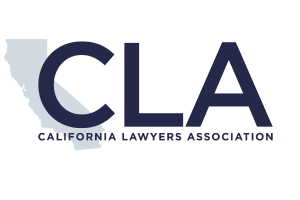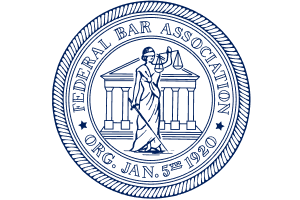Getting Results
IRS Innocent Spouse Relief
When filing a joint income tax return, both you and your spouse are responsible for all of the tax debt, or liability, owed to the Internal Revenue Service (IRS). This applies not only to the tax liability shown on a return but also any additional tax liability the IRS determines to be due. You’re both jointly responsible even if the liability is due to income, deductions, or credits of your spouse until innocent spouse relief is claimed.
If you and your spouse divorce, you remain jointly liable for the taxes, and the IRS can still collect liabilities from you even if the divorce papers state your former spouse will be solely responsible for the tax upon finalization. However, in some cases, a spouse or former spouse will be relieved of the tax, interest, and penalties on a joint tax return.
Married persons who did not file joint returns but live in community property states, such as California, may also qualify for relief. There are three types of relief available to married persons who filed joint returns: Innocent Spouse Relief, Separation of Liability Relief, and Equitable Relief. In order to request relief, you must file Form 8857, Request for Innocent Spouse Relief.
TWO YEAR RULE:
It is vital your request is filed as soon as you become aware of any tax liabilities which you believe only your spouse should be held responsible. A couple of ways you may become aware of a tax liability are: i)IRS is examining your tax return and proposing to increase your tax liability. ii) IRS sends you a notice. The request then must be filed no later than two years after the date on which the IRS attempted to collect the tax from you, barring any exceptions.
Do not delay in filing your request because you do not have all the documentation. Collection activities that may start the two-year period are: i) IRS offsets your income tax refund against an amount you owed or a joint return for another year, and the IRS informed you about your right to file Form 8857. ii) The filing of a claim by the IRS in a court proceeding in which you were a party or the filing of a claim in a proceeding that involves your property. This includes filing of a proof of claim in a bankruptcy proceeding. iii) The filing of a suit by the United States against you to collect joint liability. iv) The issuance of a section 6330 notice, Notice and Opportunity for Hearing before Levy, and your right to a collection due process hearing. The IRS usually sends a 6330 notice by issuing Letter 11, Notice of Intent to Levy and Notice of Your Right to a Hearing, or Letter 1058, Final Notice: Notice of Intent to Levy and Notice of your Right to a Hearing.
By law, the IRS must contact your spouse or former spouse that you have filed for Innocent Spouse Relief and will allow him or her to participate in the process. There are no exceptions even for victims of spousal abuse or domestic violence. If you are requesting relief from joint and several liability on a joint return, the IRS must also inform your spouse or former spouse of its preliminary and final determinations regarding your request for relief.
TAX COURT APPEAL ALLOWED
After you file a Form 8857, you may have the ability to petition the Tax Court, an independent judicial body and not part of the IRS, to review your request for relief if: i) IRS sends you a final determination letter regarding your request for relief. ii) You do not receive a final determination letter regarding your request from the IRS within six months from the date you field Form 8857.
You must file the petition to the Tax Court no later than 90 days after the date the IRS mails its final determination letter to you. If no petition gets filed or is filed late, the Tax Court cannot review your request for relief.
A Form 8857 may be filed by or on behalf of a decedent. An executor or any other duly appointed representative may pursue a Form 8857 filed during the deceased’s life and may also file the form if the deceased satisfied all of the eligibility requirements while alive. For purposes of the separation of liability relief, the deceased’s marital status is determined by either the date relief was requested or the date of death, whichever is earlier.
Prerequisite to Filing Innocent Spouse Relief:
i) Joint return was file. ii) There is an understated tax on the return that is due to erroneous items of your spouse or former spouse. iii) You can show that when you signed the joint return you did not know, and had no reason to know, that the understated tax existed or to what extent the understated tax existed. iv) Taking into account all the facts and circumstances, it would be unfair to hold you liable for the understated tax.
You may qualify for partial relief when a portion of an erroneous item is unknown, and, at the time you filed your return, you had no knowledge or reason to know of a portion of an erroneous item. If you qualify, you will be relieved of the understated tax due for the portion of the item if all other requirements are met.
Separation of Liability Relief:
The understated tax, along with all interest and penalties, on your joint return is allocated between you and your spouse or former spouse. The understated tax divided to you is the amount you are responsible for. This type of relief is also available for liabilities resulting from understated tax, but refunds are not allowed for any liabilities that have been paid.
To qualify for Separation of Liability Relief, you must have filed a joint tax return as well as meet either of the following requirements at the time you filed a Form 8857:
1. You are no longer married to, or are legally separated from, the spouse with whom you filed the joint return for which you are requesting relief. With this, you are no longer married if you are widowed. 2. You were not a member of the same household as the spouse with whom you filed the joint return at any time during the 12-month period ending on the date you file Form 8857.
You and your spouse are not members of the same household if you are living apart or have been estranged. However, you and your spouse are considered members of the same household if any of the following criteria are met: 1. You and your spouse reside in the same dwelling. 2. You and your spouse reside in separate living spaces but are not estranged, and one of you is temporarily absent from the other’s household. 3. Either spouse is temporarily absent from the household. It is reasonable to assume that the absent spouse will return to the household, and the household or an equivalent household is maintained in anticipation of the absent spouse’s return. Some temporary absences include imprisonment, illness, business, vacation, military service, or education.
In order to qualify for Separation Liability Relief, you must be able to prove that you meet all of the above requirements and that you did not exchange property to avoid tax. You must also establish the basis for allocating the erroneous items. The burden of proof lies with the taxpayer, and even if you meet the requirements for Separation Liability Relief, the IRS will not grant relief in the following situations: 1. The IRS proves that you and your spouse or former spouse transferred assets to one another as part of a fraudulent scheme. 2. The IRS proves that at the time you signed your joint return you had actual knowledge of any erroneous items giving rise to the deficiency that were allocatable to your spouse or former spouse. 3. Your spouse or former spouse transferred property to you to avoid tax or the payment of tax.
Equitable Relief Act
The second way to get relief if you filed separately is by requesting Equitable Relief. If you did not file a joint return but did not qualify for relief from liability for tax attributable to an item of community income, you may be eligible for Equitable Relief. You can get Equitable Relief from an understated tax or an unpaid tax. An unpaid tax is an amount of tax you properly reported on your return but have not paid.
To be eligible for Equitable Relief from joint and several liability, you must meet all of the following threshold conditions unless you are requesting Equitable Relief from liability for tax attributable to an item of community income. To be eligible for Equitable Relief from liability for tax attributable to an item of community income you must meet all of the requirements except for items 1 and 2. 1. You are not eligible of Innocent Spouse Relief or Separation of Liability Relief. 2. You filed a joint return for the tax year(s) at issue. 3. You timely filed your claim for relief. 4. You and your spouse or former spouse did not transfer assets to one another as a part of a fraudulent scheme. 5. Your spouse or your former spouse did not transfer property to you for the main purpose of avoiding tax or the payment of tax. 6. You did not knowingly participate in the filing of a fraudulent joint return. 7. The income tax liability from which you seek relief is attributable in full or in part to an item of your spouse or former spouse or an unpaid tax resulting from your spouse’s or former spouse’s income.





















